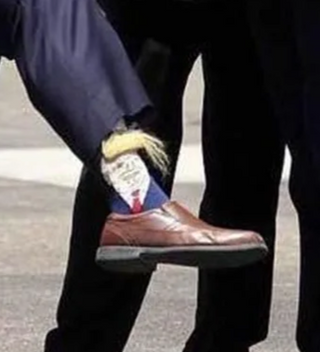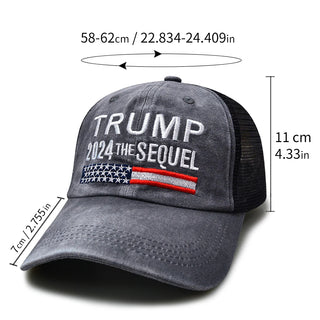The report by Durham highlights that an act of misconduct or a lack in judgment does not necessarily constitute a criminal violation. Unfortunately for him, he was only able to bring criminal charges against three different people, and he was unsuccessful in two of the instances that went to trial. Kevin Clinesmith, a former FBI lawyer, entered a guilty plea in a separate case to the charge of modifying an email that was used in a surveillance application; however, he was not sentenced to any time in prison for his actions.
The paper highlights the fact that the law does not punish every immoral or unsightly behavior that may occur during political campaigns for the purpose of gaining a strategic advantage. In order for prosecutors to achieve convictions, it is necessary for them to demonstrate that the defendant acted with criminal intent. It would appear that this comment is making a reference to the numerous claims that Republicans have made against Hillary Clinton's 2016 campaign and the outside backers of that campaign.
In addition, Durham refutes the assumption that the swift acquittals of two out of the three defendants whom his team pursued are evidence that their efforts were in vain. As the acquittals have shown, he explains, it is particularly difficult to secure convictions in politically charged cases because of the difficulties involved in doing so.
In a deviation from the typical procedure for a criminal investigation carried out in accordance with the regulations of the Justice Department's special counsel, Durham's report contains recommendations for how the DOJ and the FBI should improve their methods of operation. The handling of politically sensitive investigations is the primary emphasis of these recommendations, which also include designating a career official to review surveillance applications submitted to the FBI in such instances and avoiding the practice of hiding crucial material in footnotes.
Although the report sounds more like an examination by the inspector general investigating possible instances of waste, fraud, and abuse rather than a criminal investigation, it does not include some of the typical safeguards. For example, it does not provide the individuals and organizations that are referenced with the opportunity to provide factual corrections and rebuttals.
The scope of Durham's investigation went well beyond the subject of whether or whether those persons who were involved in beginning or carrying out the Trump-Russia investigation should be prosecuted. In addition to this, he investigated the steps involved in making decisions involving unrelated charges of attempts to exert foreign influence on Clinton. His objective was to determine whether or not the investigations into Hillary Clinton and Donald Trump were carried out with the same level of diligence, taking into account charges of institutional bias against either candidate. However, Durham recognizes that comparing these charges is an imperfect method due to the variety of factors involved in the situation.
The initial purpose of Durham's research in 2019 was a complete assessment of the beginnings of the Trump-Russia investigation, which may be the reason why his report covers such a wide range of topics and has such a large reach. Although Attorney General Bill Barr initially charged Durham with assessing the decision not to declare political bias in early judgements and errors leading to the Robert Mueller inquiry, Durham's work eventually expanded into a criminal investigation. This was despite the fact that Durham was initially tasked with reviewing the decision. In the end, it remained a hybrid, possessing characteristics of both a criminal investigation and an after-action report.
Because of the report and the FBI's reaction to it, there is a considerable cause for concern over the potential consequences that could occur when an essential surveillance authority loses its validity in December. Despite the fact that Durham does not make a direct reference to the Section 702 authority in any of his writings, the conclusions he draws on the FBI's handling of the Trump-Russia investigation could lead to the termination of this authority by Congress. In light of the Republicans' concerns regarding the possible politicization of the FBI's intelligence work, the renewal of the power has been called into question, and there have been calls for reforms that go beyond the scope of the provision that is set to expire.
The Federal Bureau of Investigation has provided a response to the Durham report, in which it expresses shared worries about the potential impact on surveillance authorities and notes the fact that the main officers supervising the Crossfire Hurricane investigation have retired from the bureau.
The probe into Durham's activities has been politically divisive, with Democrats and current and former professionals working in intelligence agencies expressing doubt. The reliability of Durham's inquiry can be evaluated based on who helped him with his investigation and who did not assist with his investigation. Particularly notable are people like John Brennan, a former director of the CIA, Jake Sullivan, an adviser to the Clinton campaign on foreign policy, John Podesta, chair of the Clinton campaign, and Hillary Clinton herself.


















